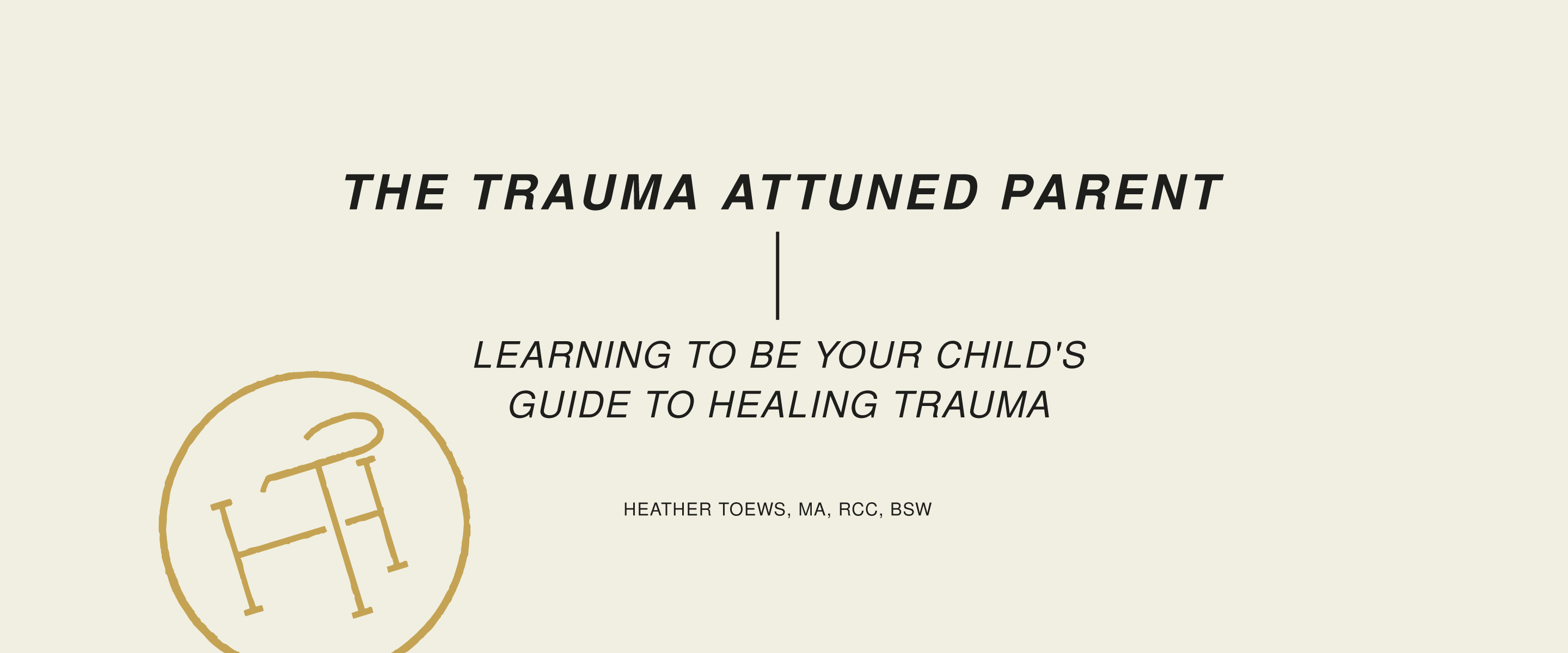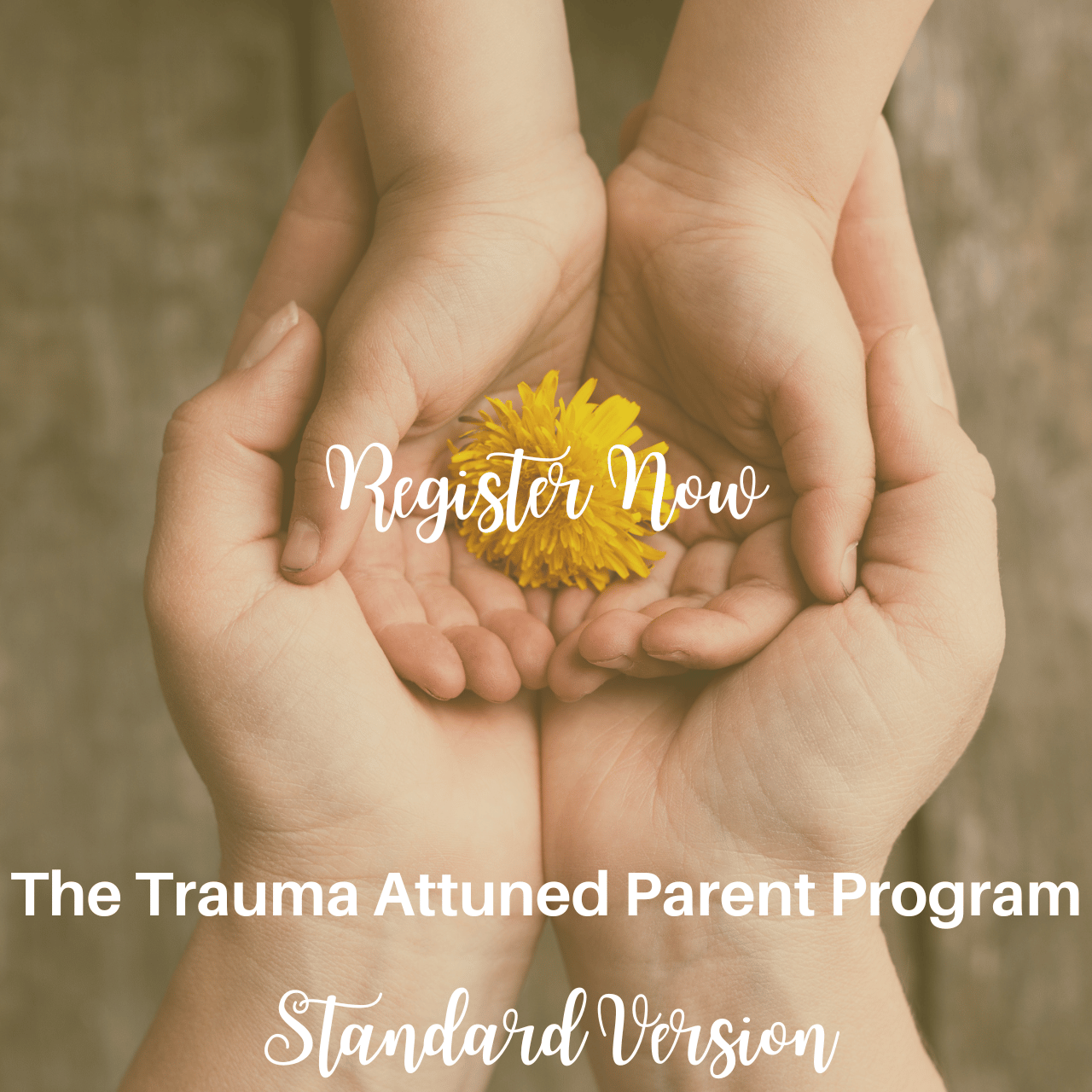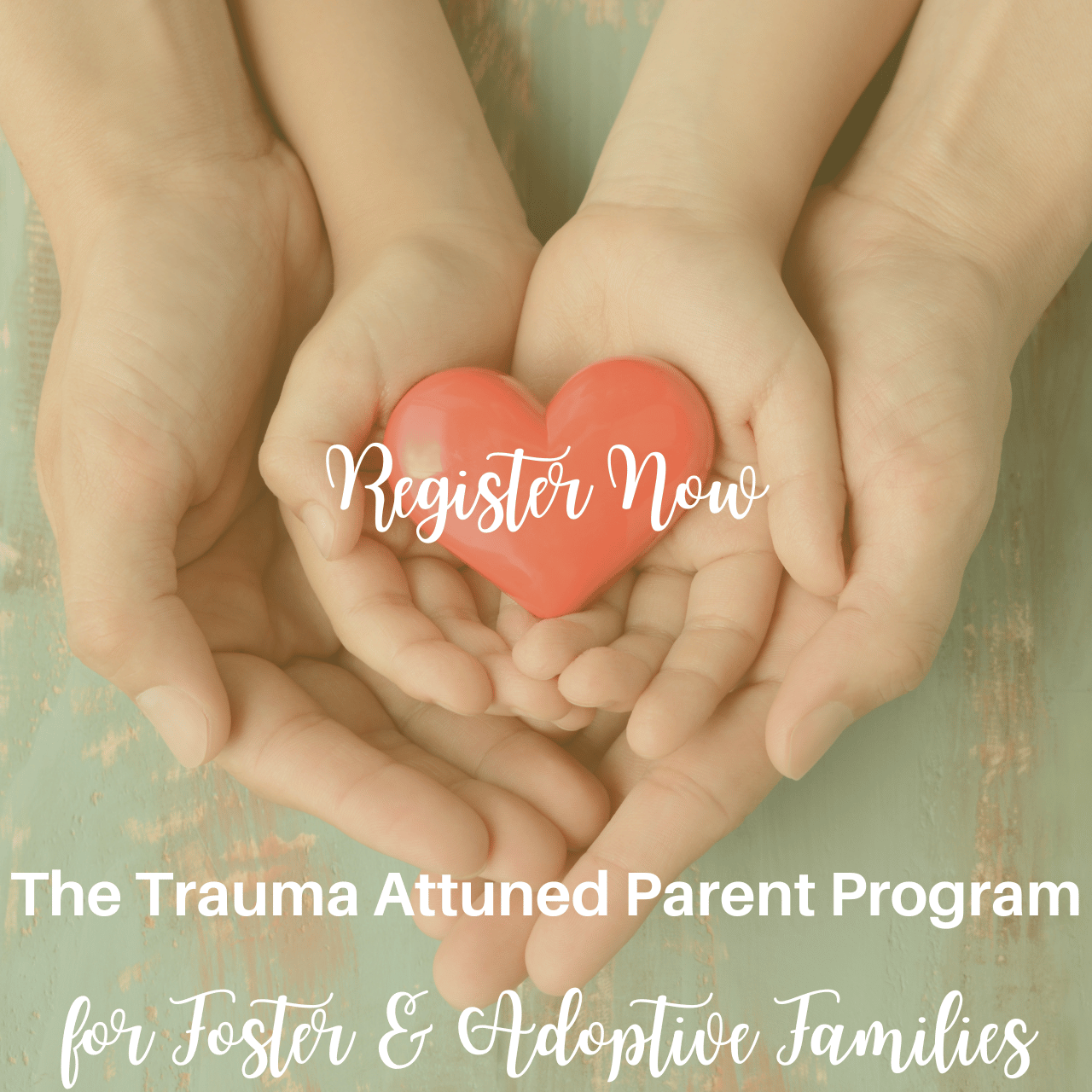
You are your child's best chance.
Trauma, although a universal term, can have varying definitions. It can be a big easily identifiable event, such as experiencing a natural disaster, witnessing a death, witnessing or experiencing abuse, neglect or sexual harm. These are known as ‘Big T traumas’. Trauma can also include small things that we may not normally identify as traumatic, known as ‘Little T traumas’. These can include non life-threatening injuries, emotional abuse, death of a pet, persistent invalidation, loss of a significant relationship, bullying or harassment. When an individual experiences multiple/persistent traumas over the course of time, particularly when they are young and where the trauma is relational in nature, it is classified as ‘Complex trauma’. Regardless of ‘Big T’ or ‘Little T’, simple or complex trauma, the core foundation of healing from trauma is the same — SAFETY.
When it comes to developing safety, the best person to offer that is you. You, as a parent or caregiver have tremendous influence and with the right tools, you are your child's best chance at healing from trauma.
I know that supporting a child with trauma can be difficult. It demands patience, consistency, understanding, deep empathy and unending compassion. I know, you are human too and it can feel hard to show up in these ways when it feels like things are hitting the fan and challenging your own sanity.
That is why I have developed these tools. I want you to feel equipped to support your child without feeling like you have to contort yourself into an entirely different person to hack it.
Start by grabbing my Tips for Healing Trauma sheet - a quick and easy way to start implementing tools for healing right now.
When you're ready, check out the Trauma Attuned Parent program, my online course supporting parents in feeling fully equipped to be their child's guide to healing trauma. I have crafted two versions of this program, a "standard version" designed for birth families, and a specialized version addressing the unique needs associated with being a foster or adoptive family. Keep reading to learn more.
Download my
Tips for Healing Trauma sheet!
Are you struggling to know where to start as you support a child through trauma? Empower yourself in providing the safety your child needs by engaging in these healing and recovery tools.
Become the Guide to Your Child's Healing

Understand Trauma
Knowledge is power, and I want to empower you with strong understanding of what trauma is, how it works and how to interpret your child's trauma responses and differentiate these from "bad behaviour".

Grow Your Toolbox
Stop feeling frantic trying to respond to your child's reactions. We are going to craft a comprehensive toolkit that will allow you to support your child in a way that is anchored to the latest in trauma research.

Heal Together
Learn to support your own wellness to ensure your capacity to be a strong resource for your child.
Cultivate safety, grow connection and heal together.
Behaviour versus Trauma Response:
How to promote healing in children who have experienced trauma
This past year-and-a-half has taught us that we are not immune to trauma – as individuals, or as members within a family or community, and even on a more global level - we are newly recognizing that we are all susceptible. We recognize that we are all carrying the impact of traumatic events we may have experienced this year or so, and that these experiences fundamentally change us. They change how we perceive the world, how we respond to events/situations around us, and how we experience each other in our relationships. Ultimately our behaviour is affected because trauma informs how our nervous system interprets our experiences and then responds.
In many ways, the experience of this time sheds light for those who have perhaps had limited exposure to traumatic experiences, on what it can feel like and mean for someone to be impacted by trauma. It offers a glimpse at what it is like for children who have been exposed to trauma - because if it’s hard for us as adults to find our way through a traumatic experience, how much harder must it be for a child?
In my work with parents supporting children with a lived trauma experience, I have heard it all. The behavioural challenges exhibited by traumatized children can be so hard to manage. Believe me, I hear your struggles. Do any of these statements resonate with you and with your experience of parenting a child who has experienced trauma?
“My child can’t seem to manage any emotion. Why does it always have to end in a melt-down?”
“It seems they just want to control everything! They can be so manipulative.”
“It’s like there is no filter; they just act on every impulse.”
“They lie or blame everyone else to cover up their mistakes, even if I just saw them do it.”
“They just won’t let me in. They shut down and I don’t know how to help them.”
I see you, and I know you are doing the best you can. It is hard and frustrating and sometimes you just want to throw in the towel or sell them to the circus (if that were even a thing right now).
What if I told you that your child is not intentionally trying to drive you crazy? It may be a relief to learn that their behaviour – the survival strategies and defense reactions you have likely become familiar with – are a result of an over-sensitized nervous system. This impacts how your child processes the things they feel in their body, how they experience emotions, their beliefs about the world, and how they interact with others. This results in a more sensitive ‘smoke detector’, or safety system, leading to intensified Fight, Flight, Freeze responses, and the difficult behaviours that you experience every day. As challenging as this is, this means that that there is HOPE! Although you may not have caused the trauma, YOU are the ANSWER.
I have worked with foster and adopted children and families for almost 20 years, first as a social worker and now as a Child and Youth Mental Health Clinician and therapist. As a child protection worker, I often felt helpless. I saw the aftermath of trauma - both for parents and their children. As meaningful as this work could sometimes be, my role, often seen as adversarial, made this work difficult. When the opportunity came to work in the field of adoption, I felt more hopeful. This was my opportunity to change the trajectory of a child’s life. It wasn’t long before I recognized that being placed in a ‘stable home’ did not resolve the challenges. The training these parents received prior to placement didn’t fully prepare them for the degree of impact trauma had already inflicted. This inspired me to dig deeper and explore more about how to heal from trauma. Soon after I was at a training by Dr. Bruce Perry, a psychiatrist at the Child Trauma Academy. I learned about the Neurosequential Model of Therapies. Don’t let me scare you off - this training changed my life. In fact, it sent me back to school for my Masters degree. I knew that I was meant to be a part of the healing, whether it be with birth, adoptive parents or caregivers, I learned that they were the key. YOU are the ANSWER.
I have had the great pleasure of supporting caregivers in understanding trauma and the “why” underneath their child’s behaviour and responses. I consider myself a lens shifter, empowering parents by giving them new glasses with which to see their child. When this shift occurs, it removes the personalization of their child’s behaviour and increases capacity to attune to their child, enter into their experience and work through the hard things.
Treating trauma takes time, but it is not a lost cause. I have been privileged to see families move from surviving to thriving. An attuned and responsive environment are the key to promoting healing and reducing the sensitivity of their ‘smoke detector’. A regulated nervous system has the ability to think, be flexible, respond with empathy, and respond in ways that encourage connection -- and I’m not just talking about our kids here. This is the ultimate gift for us and our child.
For those wanting to dive deeper and truly transform the legacy of trauma in their family, I have launched a comprehensive and evidence-based online program for parents on healing traumatized children. I have carefully crafted two versions of this program: one tailored to birth families, and another specifically tailored to the needs of adoptive and foster parents. This course has been honed and adapted over the past five years to bring in the most pertinent information from experts as well real-life strategies that will assist any caregiver supporting a child who has a lived experience of trauma.
You can access this 6-module series now by choosing the program version tailored for your family below.
Not sure you're ready for the full program? No worries, click the button just below to receive my free Tips for Healing Trauma handout. Use it to give you a jumpstart in supporting your child's healing.
Register For The Trauma Attuned Parenting Program Now!
I have carefully crafted two versions of this program, one for birth families, and one tailored to the specific needs of foster and adoptive families. Please select the program (below) that best fits your family's needs.
Register Now
Choose the program version best suited to your families needs.

Trauma Attuned Parenting Program
(Standard Version)
Carefully crafted, the standard version of this program is designed for families supporting a child through trauma.

Trauma Attuned Parenting Program for Foster & Adoptive Families
A specialized version of the Trauma Attuned Parenting Program tailored to support the unique needs of Foster & Adoptive families.
What Is Included:
Access 6 sessions of online video-based lessons, including additional integration examples to help you apply the skills in your home right away. Bonus resources will help equip you to foster healing alongside your child.
Pathways to Dysregulation and the Repair of Developmental Trauma; Connection or Protection?; Attachment and Brain Development; Stress Response System; Regulate with Mindfulness
How Your Childhood Affects Your Relationships?; Attachment Theory and Common Attachment Problems; Shame-Based Identity; The Calm Technique; Conditions for Fostering Deep Attachment
Problems with Emotional Avoidance and How We Got Here; Emotion Basics; Emotion Coaching; Emotion Coaching Practice
What Are ACE's?; The Effects of Complex Trauma; Brain Development and Self-Regulation / the Window of Tolerance; PTSD Characteristics; Resilience - what does it look like and building resilience in children; Guidelines for Those Living with Traumatized Children
Child's Beliefs, Survival Strategies and Defense Reactions; Strategies for Working with Stuck Kids; Sensory Interventions; Use of Rituals; Changing Beliefs and Expectations
Positive Parenting; How to Handle Your Anger At Your Child; Ways to Support Our Children; What's Wrong with Timeouts?; Self-Care; Sleep Hygiene; Resilience Building Skills and Self-Soothing; Tips for Being a Trauma Informed Parent

What People Are Saying...
Register Now
Choose the program version best suited to your families needs.

Trauma Attuned Parenting Program
(Standard Version)
Carefully crafted, the standard version of this program is designed for families supporting a child through trauma.

Trauma Attuned Parenting Program for Foster & Adoptive Families
A specialized version of the Trauma Attuned Parenting Program tailored to support the unique needs of Foster & Adoptive families.